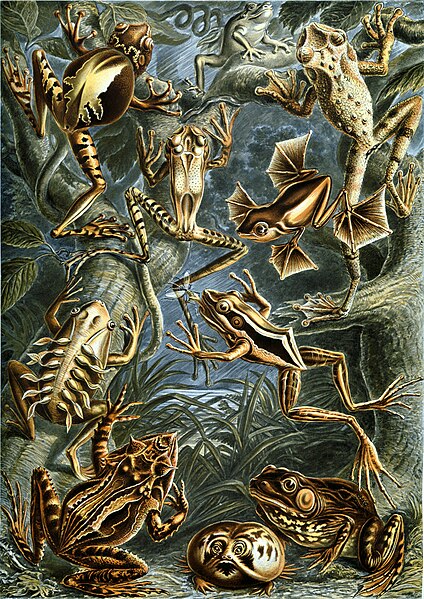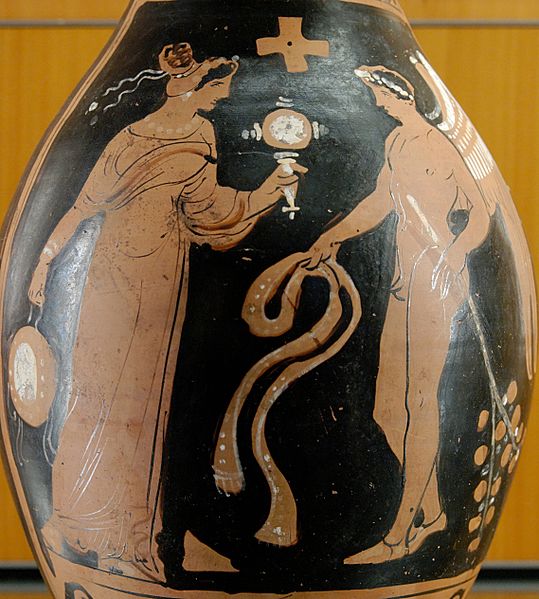In English translations of the Bible, unclean spirit is a common rendering of Greek pneuma akatharton, which in its single occurrence in the Septuagint translates Hebrew ruaḥ tum'ah.
Jesus drives out a demon or unclean spirit, from the 15th-century Très Riches Heures
The Hebrew se’irim, or "hairy demon," is sometimes translated "satyr," as depicted here in a Roman mosaic.
Judean desert, a liminal space thought hospitable to unclean spirits (Matthew 12:43)
Frogs of the amphibian class Batrachia (Haeckel, 1904); Revelation compares three pneumata to frogs (Greek batrachoi), an unclean animal
The Ancient Greek: δαίμων, pronounced daimon or daemon, originally referred to a lesser deity or guiding spirit such as the daimons of ancient Greek religion and mythology and of later Hellenistic religion and philosophy.
The word is derived from Proto-Indo-European daimon "provider, divider ," from the root *da- "to divide". Daimons were possibly seen as the souls of men of the golden age acting as tutelary deities, according to entry δαίμων at Liddell & Scott. See also daimonic: a religious, philosophical, literary and psychological concept.
Gold ring with Sitting Goddess and row of Minoan Genius figures bearing offerings, found in context from Mycenaean Greece, but probably made in Minoan Crete, NAMA
Carnelian gem imprint representing Socrates, Rome, first century BC – first century AD
Winged genius facing a woman with a tambourine and mirror, from southern Italy, about 320 BC







